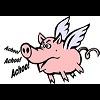Massive Turbo Flutter
Announcements
-
Similar Content
-
Latest Posts
-
A few things that seem a bit off here. - why is there 2 BOV’s? - the turbo smart BOV on the compressor housing, is it turned up ALL the way? I have seen this become an issue on old man Pete’s car. It would push open and recirc, turbo speed would rise and the boost pressure would do weird things. - stock head? Does that include springs? - tried a different MAC valve? Is it plumbed correctly?
-
Photo of manifold showing gate location? I mean, it's 6Boost, so we probably shouldn't be worrying, but always wroth knowing what the layout is. Plumbed back to atmosphere? Or into the dump?
-
By Murray_Calavera · Posted
Yes correct. Also, I'd avoid applying it to soft paint (however I doubt you'll ever have to deal with it in practice). So any paint that hasn't fully hardened, could be a 1k paint that never fully hardened or it could be a 2k paint that was laid down thick and hasn't yet fully hardened. -
Wow, i wish i found this sooner.
-
Bit of an update to this one. Having some issues on the dyno that held us back (boost spiking) and I want to pass some info over you guys and see what you think is wrong with my setup. The current readout on this dyno is 462rwkw on a low reading dyno so keep in mind it is a real world 500rwkw setup on a hub dyno. Don't read into the power figure too much as a sign of the issue. The short and curly of it is: 2.8 Litre Racepace build RB25 NEO N/A Head with VCT (internally standard however ) Borgwarner EFR 8474 Turbosmart 50mm Straight Gate + Mac valve 6Boost Manifold 4" dump to full 4" exhaust (nil restrictions) Wastegate plumbed back in and all angles in the exhaust system are acceptable and not too sharp. GFB SV52 BOV in cooler piping Turbosmart BOV in EFR Housing The issue we are having is it comes onto full boost for example at 4000rpm and spikes to 24/25psi, before dropping down to 17psi before slowly rising back up to the target boost of 23psi. It was extremely uncontrollable and the tuner actually had to ramp in boost progrssively with each 1000rpm on each boost setting we selected to try and reduce the amount of spiking. Sometimes we would see a drop of 10psi from the peak at the beginning of the run, to the low, until it took the next 500-1000rpm to stabilise back up to the target boost. The tuner is pretty confident that the straight gate is just a poorly designed product and leaks too much boost upon cracking the gate open and theres no way to fix it other than going to a poppet valve. He's also confient theres no ignition breakdown or floating valves. The fueling is extremely stable as well. Turbo speed is somewhere around the 109,000rpm area. The spanner in the works for me is that prior to this Borgwarner and StraightGate, the car was tuned on -5 twins at a diferent tuner, and he also had issues controlling the boost with it spiking around the same rpm range, so to me this sounds like the same issue and it can't be anything on the turbo side as this was all changed and I think the behaviour is extremely similar, if not the same. We also removed the mac valve and did a run on wastegate pressure and it still spiked and had the same behaviour. My thoughts on possibilities are: Boost Leak VCT Cam Gear isn't reliably activating consistently - (On this however, we did a run with the VCT disabled and the boost still spiked) Turbosmart BOV is not handling the boost? However this seems unlikely to not be able to handle 20psi. I have a couple of logs that I can't make sense of if anybody knows how to read them and can obtain further logs of other parameters if they are not enough, happy to pay for anyones time. The dyno readout with the power figure is the most recent last week. The other picture is from two weeks prior to that where we couldn't break 400kw (we removed the cat), however the issue of the boost control persisted. @Lithium @Piggaz @burn4005 @GTSBoy @discopotato03 I've tagged those that were quite active in recent pages here, no disrespect to those that know turbos well but I missed tagging. Cheers
-




Recommended Posts
Create an account or sign in to comment
You need to be a member in order to leave a comment
Create an account
Sign up for a new account in our community. It's easy!
Register a new accountSign in
Already have an account? Sign in here.
Sign In Now